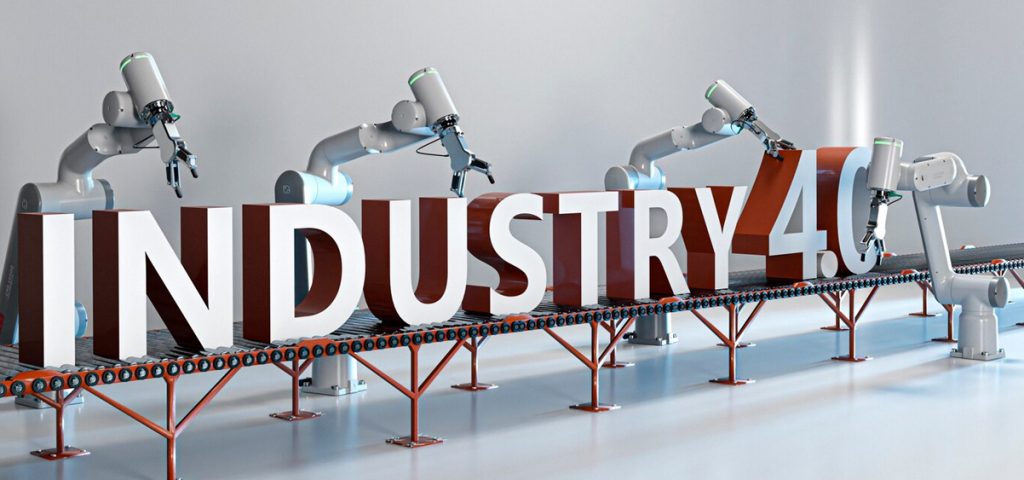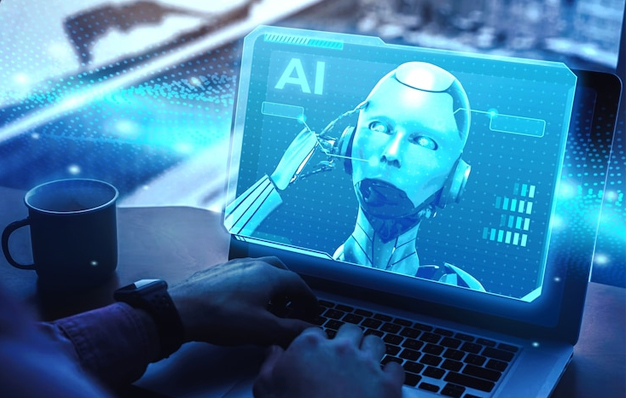The landscape of manufacturing is undergoing a seismic shift. Today, digital transformation isn’t a luxury, it’s a survival tactic. From robots wielding welding torches to algorithms predicting equipment failure, Artificial Intelligence (AI) is rapidly transforming how we build things. This translates to a significant competitive edge: enhanced customer experiences, reduced operational costs, and a future brimming with possibilities.
Let’s delve into how five distinct manufacturing sectors are leveraging AI to achieve remarkable results and explore what lies ahead for each:
1. AI in Automotive Manufacturing
The automotive industry thrives on precision and accuracy, two areas where AI shines. Take Ford, for example. They’ve introduced collaborative robots (cobots) to handle welding, gluing, and quality control tasks. These tireless assistants can sand an entire car’s body in a mere 35 seconds – a testament to AI’s ability to streamline production. Similarly, BMW’s US manufacturing hub harnesses AI-powered robots, saving a cool $1 million annually while empowering human workers to focus on higher-value tasks. With the automotive AI market projected to hit a staggering $7 billion by 2027, it’s clear that AI is driving the industry forward.
2. Building Smarter Electronics
The intricate components found in electronics demand a high degree of precision. Here, AI steps up as a critical ally, minimizing errors, optimizing product design, and accelerating time-to-market. Samsung’s South Korean facility provides a prime example. They utilize a fleet of automated guided vehicles (AGVs), robots, and mechanical arms for tasks like assembling phones, transporting materials, and meticulously inspecting each Galaxy S23 or Z Flip 5. These intelligent tools help maintain rigorous quality standards, ensuring flawless components even at high production volumes.
Nvidia, a leader in graphics processing units, is leveraging AI to optimize the placement of intricate transistor configurations on silicon substrates. This not only saves precious time but also offers greater control over price and speed. In a real-world example, their AI optimized a design featuring a staggering 2.7 million cells and 320 macros in just three hours – a feat that would have taken human engineers significantly longer. As the electronics market continues to evolve and AI innovation marches forward, the use of AI in this sector will undoubtedly become the norm.
3. The Impact on Aerospace and Defense
The aerospace and defense industries prioritize safety and reliability above all else. Thankfully, AI-driven manufacturing plays a pivotal role in ensuring the creation of high-performance, dependable components. The AI in the aviation market is a prime example, boasting a current value of $686.4 million and an expected growth rate exceeding 20% per year.
Airbus, a leading aircraft manufacturer, has partnered with Neural Concept to utilize machine learning (ML) technology. This dynamic duo has slashed aircraft aerodynamics prediction time from a painstaking hour to a mere 30 milliseconds! This incredible leap in productivity empowers design teams to explore a staggering 10,000 more design variations in the same timeframe compared to traditional methods.
Rolls-Royce, another industry giant, has joined forces with IFS to leverage AI in aerospace manufacturing through the ingenious Blue Data Thread strategy. This approach utilizes digital twins and AI for predictive maintenance, resulting in a remarkable 48% increase in engine lifespan before needing its first removal.

4. Ensuring Food Safety
The fast-paced world of food and beverage (F&B) manufacturing demands exceptional quality assurance, particularly in the realm of high-speed consumer goods. Equipment breakdowns and faulty products can disrupt the entire operation. Here, AI emerges as a hero, boosting efficiency, cost-effectiveness, and, most importantly, product quality and safety.
The global AI market for the F&B industry is poised to reach a staggering $35.42 billion by 2028. Predictive maintenance startups are particularly sought-after. Companies like Augury Inc. are revolutionizing the scene. For instance, they helped PepsiCo’s Frito-Lay division reclaim a whopping 4,000 hours of manufacturing capacity annually through their AI-powered predictive maintenance systems, which significantly reduced unplanned downtime and associated costs across four Frito-Lay plants.
5. Revolutionizing Drug Discovery
The development of a new drug is a marathon, often taking a decade or more, followed by a two-year wait for market approval. To make matters worse, a staggering 90% of drugs fail clinical trials, sending researchers back to square one. AI, however, offers a glimmer of hope, accelerating drug development and enhancing quality control.
Pfizer, a household name in pharmaceuticals, collaborated with IBM’s supercomputing muscle and AI prowess to design the life-saving COVID-19 drug Paxlovid in a remarkable four months. This feat was achieved by reducing computational time by a staggering 80% to 90%. AI’s transformative power extends beyond just speed. Here are three key areas where AI tackles drug discovery challenges:
- Protein Structure Prediction: Imagine having a blueprint to understand the intricate workings of complex molecules. AI systems like AlphaFold2 are doing just that. By accurately predicting protein structures, researchers can potentially bypass years of laborious lab work.
- Function Forecasting: A recent Forbes article shed light on how AI models can predict the function of large molecules. This translates to a deeper understanding of how proteins bind to their targets and how antibodies move within the body, paving the way for more targeted and effective therapeutic responses.
- New Therapies Design: AI algorithms are adept at analyzing vast datasets to design proteins, antibodies, and mRNA structures for diseases like cancer. Genesis Therapeutics exemplifies this innovation. They leverage AI to design new medications, predicting their effectiveness, specificity, and potential side effects with remarkable accuracy.
The potential impact of AI in drug development is nothing short of groundbreaking. Experts estimate that AI could generate 50 new drugs within a decade, translating to a staggering $50 billion in sales. Over 80 companies are actively pursuing AI-driven drug development, attracting significant investments from pharmaceutical giants.
Future of AI-Powered Manufacturing
A recent survey conducted by Augury, a leading AI solutions provider for manufacturing, revealed that a staggering 63% of firms plan to increase their AI spending. This aligns perfectly with market projections, with the AI in the manufacturing market expected to reach a value of $20.8 billion by 2028, according to MarketsandMarkets.
The efficiency gains unlocked by AI integration translate into significant cost and time savings, freeing up resources to be directed toward more strategic endeavors and groundbreaking opportunities. However, successfully implementing AI in manufacturing hinges on a strong foundation built on three key pillars: problem, people, and process. Here’s a roadmap to guide you in developing each pillar:
- Defining the Problem: The first step is to identify the specific bottlenecks causing higher costs or production delays. For companies new to AI, it’s crucial to break down the issue into clear, measurable, achievable, relevant, and time-bound (SMART) goals. Additionally, assess the potential cost savings achievable with AI to build a convincing ROI case.
- Resource and Data Considerations: Building a successful AI team requires a diverse mix of technical and business expertise. Evaluate your in-house capabilities and determine if outsourcing or hiring additional talent is necessary. Ensure you have sufficient data to train your AI models. Clean and structure your data effectively, and establish secure and scalable storage solutions.
- Data Quality Assessment: Is your data up-to-date, accessible, and adequate for your AI model’s needs? Address any data quality issues before proceeding.
- Selecting an AI Model: Here, you have three primary options: building an AI model from scratch, purchasing a pre-built solution, or adopting a hybrid approach that combines both. Carefully consider your resources, needs, and technical expertise when making this decision.
- Fine-tuning and Deployment: Once your AI model is developed, it’s crucial to refine it through testing and feedback loops. Plan for a smooth deployment, ensuring scalability to accommodate future growth.
QeDatalab: Your Partner in AI-Powered Manufacturing
The landscape of manufacturing is rapidly evolving, and QeDatalab is here to guide you through the exciting world of AI. We are a leading provider of AI solutions specifically designed to empower manufacturers of all sizes. Our team of experts boasts a deep understanding of the manufacturing industry’s unique challenges and opportunities.
We offer a comprehensive suite of AI-powered services, including:
- AI Needs Assessment: We’ll work with you to identify the areas where AI can deliver the most significant impact within your organization.
- Custom AI Model Development: Our team of data scientists and engineers will create a bespoke AI model tailored to your specific needs and goals.
- Data Management and Analytics: We’ll help you harness the power of your data to optimize your operations and inform strategic decision-making.
- AI Implementation and Integration: Our team will seamlessly integrate AI into your existing workflows and infrastructure.
- Ongoing Support and Training: We’ll provide ongoing support and training to ensure your team can leverage the full potential of AI.
Don’t wait to get started!
Contact QeDatalab today to schedule a free consultation and explore how AI can revolutionize your manufacturing operations. Together, we can unlock a future of unparalleled efficiency, innovation, and growth.
Let’s build the future of manufacturing, together.
Conclusion
As you embark on your AI journey, remember to prioritize ethical considerations at every step. Rigorously check for potential biases in your data and develop safeguards to mitigate them. By adhering to ethical frameworks, you can ensure that your AI initiatives are not only effective but also responsible.
The future of manufacturing is unquestionably intertwined with AI. By embracing this transformative technology and strategically implementing it within your organization, you can unlock a new era of efficiency, innovation, and success. The time to act is now. Are you ready to join the AI revolution?




